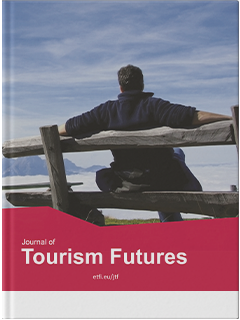Human capital futures: an educational perspective
IF 6.6
Q1 HOSPITALITY, LEISURE, SPORT & TOURISM
引用次数: 1
Abstract
PurposeEducation institutions can be slow to react to the changes that are happening in human capital development content and delivery. This article highlights some of the shifts that robotics, artificial intelligence (AI) and access to information are having on jobs in tourism and the future of work. It explores the ways in which the tourism education sector can respond.Design/methodology/approachThis paper draws upon content shared at several conferences and webinars addressing the future of work and the education delivery methods from experts and commentators on the subject. This was augmented by research conducted by global tourism associations, the World Economic Forum and other global associations and supported with secondary data from recent media and online content providers.FindingsBy highlighting emerging trends in the sector and skills to thrive in the fourth industrial revolution, we can identify what education should focus on during this period of transition and uncertainty. We need to capitalize on the digital delivery skills we have developed due to COVID-19 and build new content and accessible learning approaches.Originality/valueThere are many uncertainties about the future of work and the way that a rapidly digitized education delivery approach has and will affect tourism education in the future. This article is aimed to generate further thought and dialogue by identifying changes and raising points about what we are effective at in public post-secondary education and what we need to capitalize on and adapt to in the future. The core question posed is that if the tourism and hospitality workforce and work environment has changed, has, or can, tourism and hospitality training and education change as well?人力资本的未来:教育视角
教育机构对人力资本开发、内容和交付方面正在发生的变化反应迟缓。本文重点介绍了机器人技术、人工智能(AI)和信息获取对旅游业和未来工作岗位的影响。它探讨了旅游教育部门可以作出反应的方式。设计/方法/方法本文借鉴了专家和评论员在讨论未来工作和教育交付方法的几次会议和网络研讨会上分享的内容。全球旅游协会、世界经济论坛和其他全球协会进行的研究,以及来自近期媒体和在线内容提供商的辅助数据,增强了这一结论。通过强调该行业的新趋势和在第四次工业革命中蓬勃发展的技能,我们可以确定在这一过渡和不确定时期教育应该关注什么。我们需要利用因2019冠状病毒病而获得的数字传播技能,构建新的内容和无障碍学习方法。创意/价值关于未来的工作,以及快速数字化教育交付方式已经并将影响未来旅游教育的方式,存在许多不确定性。本文旨在通过识别变化和提出我们在公立中学后教育中有效的方面以及我们未来需要利用和适应的方面,从而产生进一步的思考和对话。提出的核心问题是,如果旅游业和酒店业的劳动力和工作环境发生了变化,那么旅游业和酒店业的培训和教育是否也会发生变化?
本文章由计算机程序翻译,如有差异,请以英文原文为准。
求助全文
约1分钟内获得全文
求助全文
来源期刊

Journal of Tourism Futures
HOSPITALITY, LEISURE, SPORT & TOURISM-
CiteScore
15.70
自引率
6.00%
发文量
64
审稿时长
34 weeks
期刊介绍:
 求助内容:
求助内容: 应助结果提醒方式:
应助结果提醒方式:


